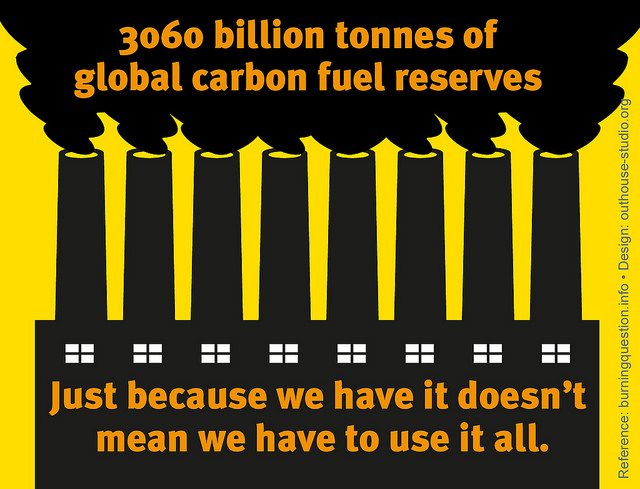Need of the Hour: Information Dissemination for Sustainability

If I told you that each pair of jeans that you own drank 3,800 liters of water; and that on a daily basis millions of people do not have access to fresh drinking water, you would perhaps think twice before buying your next pair of jeans. If I also informed you that one pair of jeans is responsible for 33.4 kilograms of CO2 emission, you will certainly reconsider the wearing of jeans altogether! Likewise, if students are made aware about how much energy a single pencil or a piece of paper takes to be manufactured, they will learn to respect books even more.
What is the real cost of the things that we are consuming? What is the cost Earth is paying?
Clearly, what we need to be provided with, is information – how our every actions is manifesting itself on the global scale, and who is affected by what. And as we all understand, there are a lot of hurdles in the path to global budgets, majorly companies, agencies, unions and governments refusing to give away their restricted or classified data.
Evidently, any decision taken to fix anything needs information – statistics on how, why, where of the problem. That is very basic and obvious. Even so, when it comes to Earth and Environment, common man has little to no access to important statistics and data.
Even if data is given or provided, it takes a ‘presentation’ to attract attention. Data representation is equally, rather more important than mere statistics. Information, data and statistics have long been collected and used as defense by major MNCs and industries, claiming that their activities are not causing pollution above the permissible levels. Carbon trading is no new term. But as a wise man once put it, “Statistics is like a bikini – what it reveals is interesting but what it conceals is vital.”
Imagine a world where you are informed about daily pollution levels, possible upcoming disasters, daily fluctuations in water table in your society, daily CO2 emissions from your residence, amount of leftover food that could be consumed by someone in dire need, and the direct effect of your actions on environment and people! (A constant reminder would definitely affect the minds of all of us who tend to see natural resources as free and inextinguishable.)
If a farmer was better informed about the damage an extra drop of pesticide could do to soil, water and health of consumers, or had precise information about the possible future disasters, it would be an unparalleled achievement and boost for any country’s economy.
If there was better connectivity between say Metro Corporation, Civil Engineering department and Delhi Jal Board, maybe less pits would be dug. Consequently less traffic, and less CO2. If the Disaster Management cells, research institutes, media and urban planning unions had more, free and public communication, the damage to lives at Kedarnath (due to flash floods of 2013) could definitely be reduced to a great extent.
And this is accepted by all the chief officials of the major centres for weather forecasting and disaster management! If our societies were connected better, we could utilize each others’ furniture, waste less water, prepare for disasters collectively and efficiently, ensure collective survival, follow the reduce – reuse – recycle strategy and collectively bring a positive change on earth. This is not just environmentally profitable, but economically and socially beneficial as well. The benefits are virtually endless!
We need to develop useful methods so that the terabytes of our past and present can be used, managed and presented for use at the ongoing critical time in human history. As said aptly by one U.S. astronomer and author Clifford Stoll, “Data is not information, information is not knowledge, knowledge is not understanding, understanding is not wisdom.”
“The gap in the availability, quality, coherence, standardization and accessibility of data between the developed and the developing world has been increasing, seriously impairing the capacities of countries to make informed decisions concerning environment and development,” reads the United Nations Sustainable Development, Agenda 21 – Chapter 40(40.2b) which clearly and precisely points out one of the major aspects which is crippling our progress towards sustainability through collective data.
We believe that being on our guards and adequately thinking before taking a new initiative is very much required to avert failures in life. Why don’t we think in a similar manner when exploiting nature and natural resources?
It is high time we start think about our planet, the only home we have got. Data management and information sharing with local people, communities, state level centres and institutes, national and international organisations is the need of the hour. A simple yet effective step in the right direction can cause empowering results for decades to come.
We are all together in this. There is no time to stamp documents “restricted” when sea levels are rising at an alarming rate of 3.5 mm per year! So raise your voice, and contribute to sustainability, in any way you can.
And finally, some food for thought: “War is 90% information” – Napoleon Bonaparte.
Image by climatesafety via Flickr



